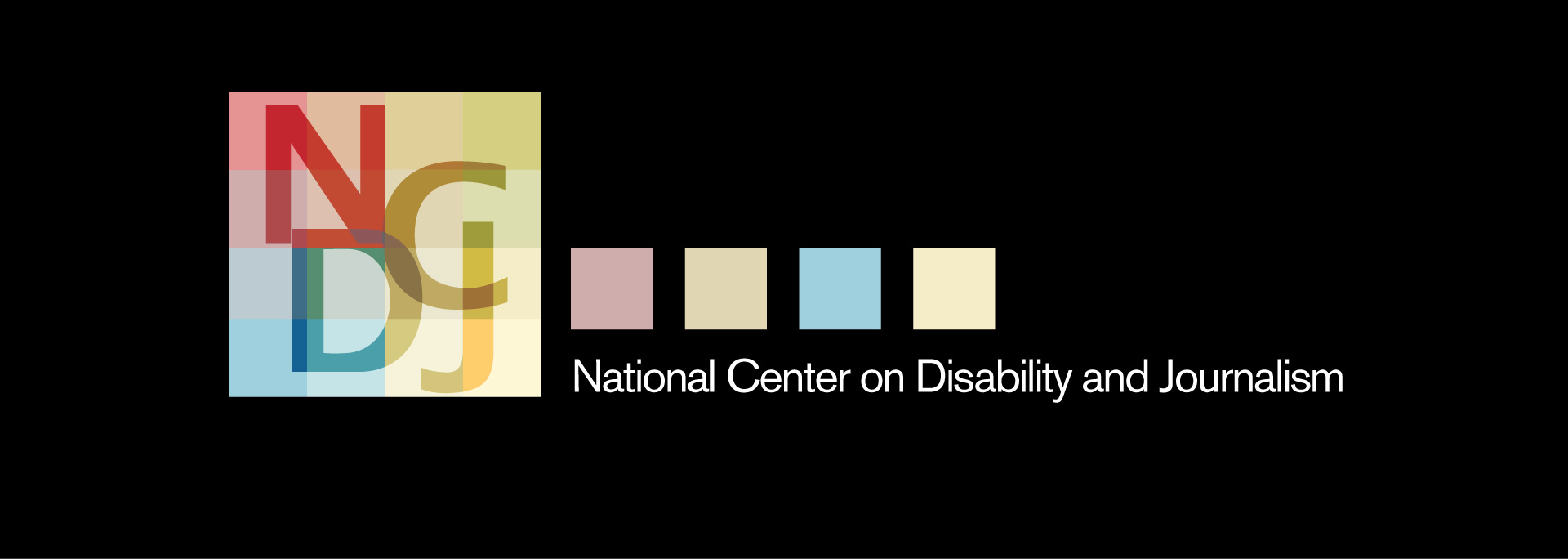The National Center on Disability and Journalism (NCDJ) is now accepting entries for the 2023 Katherine Schneider Journalism Award for Excellence in Reporting on Disability, the only professional journalism contest devoted exclusively to disability coverage.
The professional prize is supported by a gift from Katherine Schneider, a retired clinical psychologist. Schneider, who has been blind since birth, established the award to help journalists improve their coverage of disability issues, moving beyond “inspirational” stories that don’t accurately represent the lives of people with disabilities.
“There are so many worthy stories that need to be told, and with the NCDJ contest, we’re able to showcase many from around the world and recognize those properly conveying the needs, the struggles and the successes alike,” Schneider said.
In the professional contest, winners will receive a total of $8,000 in cash awards in large and small media categories. First-place winners in each category receive $2,500 and an invitation to speak about their work at an awards ceremony this fall at ASU’s Walter Cronkite School of Journalism and Mass Communication. Second-place winners receive $1,000, and third-place winners will receive $500.
For the second year, the Gary Corcoran Student Prize for Excellence in Reporting on Disability, which recognizes the best work by college journalists on topics related to disabilities, also will be awarded.
The Corcoran student award honors the life and advocacy of Gary Corcoran, a wheelchair user from the age of 19 who worked to improve accessibility of housing, public transit, air travel and public venues across Phoenix. Prize amounts are $2,500 for first place, $1,500 for second place and $1,000 for third place. Entrants must have been enrolled as a student at the time of publication or broadcast, and the work must have appeared on a campus or affiliated platform.
Journalists working in digital, print, audio and broadcast media are eligible to enter both contests. Entries are accepted from outside the U.S., although the work submitted must be in English.
Entries for both contests must have been published or aired between July 1, 2022, and June 30, 2023. The deadline to enter is Aug. 1, 2023. There is no entry fee, and reporters may self-nominate.
The entry form for the Schneider professional prize can be found at Schneider Prize Entry 2023 and for the Corcoran student prize at Corcoran Prize Entry 2023.
“Reporters across the U.S. and beyond are producing some terrific work about topics related to disability. These awards aim to celebrate their efforts but also serve to bring more attention to these issues,” said Pauline Arrillaga, incoming executive director of the NCDJ.
Entries are judged by professional journalists and experts on disability issues. Past judges have included PBS NewsHour anchor Judy Woodruff; Tony Coelho, former six-term U.S. congressman from California and the primary sponsor of the Americans with Disabilities Act; and Daniel Burke, former religion editor at CNN.
In 2022, the first-place prize in the Schneider Award Large Media category went to Heidi Blake and Katie J.M. Baker of BuzzFeed News for “Beyond Britney: Abuse, Exploitation, and Death Inside America’s Guardianship Industry.” Their examination highlighted dangerous flaws in the nation’s guardianship system and unseemly profits for those who take part in it.
Sonja Sharp of the Los Angeles Times won second in the Large Media category for “Disabled moms face healthcare snubs.” Sharp, who covers education and disability rights, produced her work with the support of the USC Annenberg Center for Health Journalism’s 2021 California Fellowship.
Third place in the Large Media category was awarded to Joseph Shapiro and Allison Mollenkamp of National Public Radio for “Air Travel Still a Nightmare for People with Disabilities,” which explored the anxiety, dread, humiliation and injury experienced by people with disabilities during air travel.
First place in the Schneider Award Small Media category went to Karim Merhej, Kareem Chehayeb and Christina Cavalcanti of The Public Source. Their story, “And What Would You Like Me to Do About It: How the Lebanese Government Disabled Hundreds of People – And Left Them to Pay for Its Crime,” examined the failed government response in the aftermath of the devastating ammonium nitrate explosion in Beirut that left hundreds of residents disabled.
Second in that category was Maria Delaney of Noteworthy, based in Ireland, for her “LIFT OUT” series, which examined transit challenges for users of the Dublin transit system. Third place went to Jennifer Szweda Jordan of Unabridged Press and All Abilities Media for “A Valid Podcast, Season 3,” which explores social inclusion for those with intellectual abilities.
In the student contest, first place went to Michael Garcia, a graduate student at Syracuse University, for “The Wilderness Pill,” which chronicled the value of outdoor education for veterans with PTSD and other ailments.
Second place was awarded to Christopher Hippensteel, also of Syracuse University, whose piece “PA justice system fails autistic people” was published by PublicSource.
The third-place student prize went to Emily Schmidt of Arizona State University for “Fading Inside: One family’s battle with Alzheimer’s amid the pandemic,” a poignant and personal in-depth story about health struggles in her own family published by Cronkite News/Arizona PBS.
About The National Center on Disability and Journalism (NCDJ)
The Schneider and Corcoran awards are both administered by the NCDJ, which is part of the Walter Cronkite School of Journalism and Mass Communication at Arizona State University. The NCDJ offers resources and materials for journalists covering disability issues and topics, including a widely used disability language stylebook. To learn more visit our website here.
